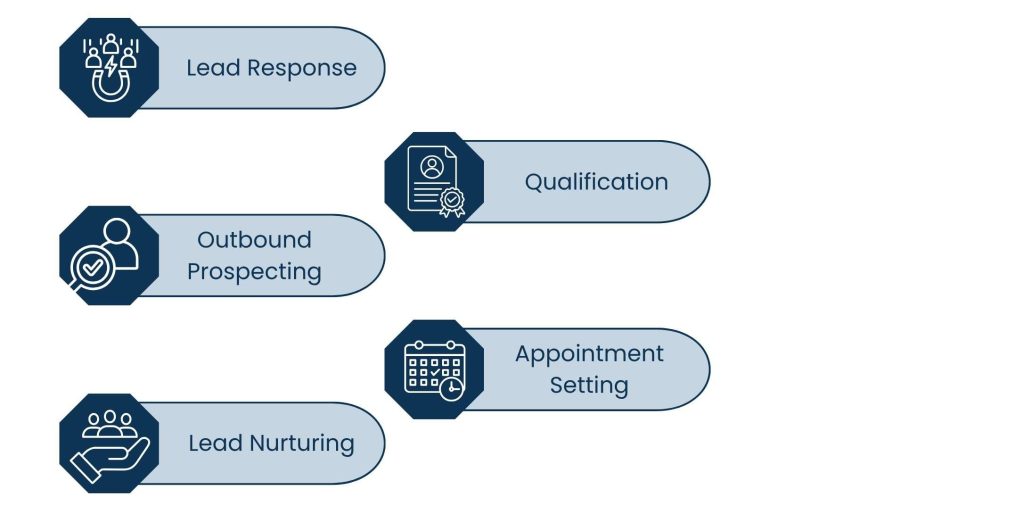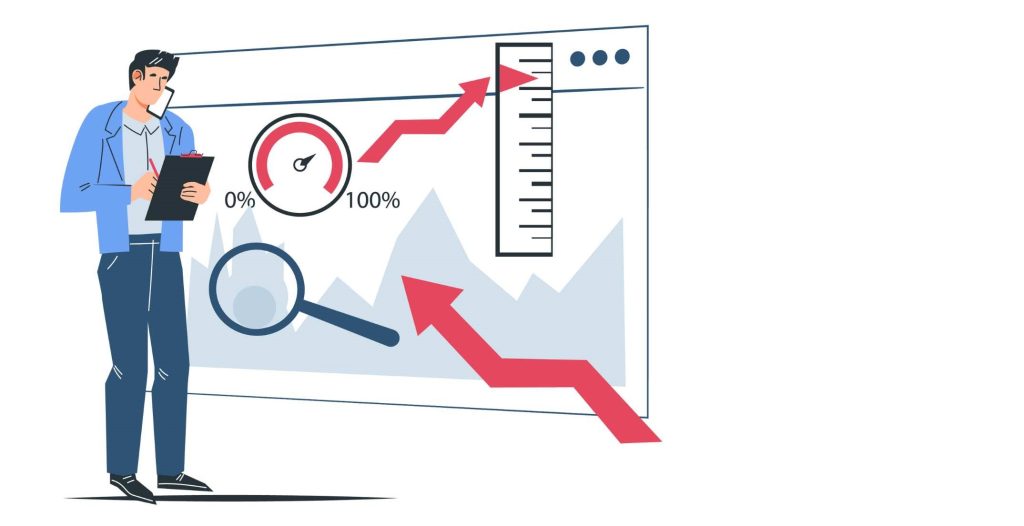Introduction
An effective Real Estate ISA program can be a game-changer for your business. Speed and consistency are everything in the real estate market, and Inside Sales Agents (ISAs) play a critical role in making sure no lead gets left behind. A great ISA can turn cold leads into warm appointments, nurture prospects over time, and help your agents stay focused on what they do best: closing deals.
But success with an ISA program doesn’t happen by accident. Without a clear structure, even talented ISAs will struggle to produce consistent results. Many real estate teams hire an ISA, whether in-house or through a virtual Real Estate ISA service, and then wonder why conversion rates don’t improve.
The key is having a well-designed program that supports your ISAs with the right processes, tools, training, and accountability. It’s not just about hiring a virtual Real Estate ISA, it’s about creating an environment where they can thrive.
In this guide, we’ll walk through exactly how to structure a Real Estate ISA program for success, whether you’re building an internal team, hiring a remote Real Estate ISA, or working with the best Real Estate ISA service for your business.
What Is a Real Estate ISA?
If you’re researching how to improve lead conversion in your real estate business, you’ve likely come across the term Real Estate ISA. But exactly what is a Real Estate ISA, and why are so many top-performing teams building ISA programs?
ISA stands for Inside Sales Agent. In real estate, an ISA is a dedicated sales professional whose primary responsibility is to qualify leads and set appointments for your agents. Think of your ISA as the bridge between marketing and sales, ensuring that no lead is wasted and that your agents spend their time with prospects who are ready to buy or sell.
Core Responsibilities of a Real Estate ISA

An effective Real Estate ISA typically focuses on five core areas:
1. Lead Response
Speed matters. ISAs ensure rapid follow-up with new leads, often within minutes of a web inquiry or phone call. Studies show that leads contacted within five minutes are 21x more likely to convert. ISAs help ensure your team responds faster than the competition, keeping prospects engaged while their interest is highest.
2. Outbound Prospecting
ISAs conduct cold calling, circle prospecting, FSBO/expired outreach, and more, helping generate listing and buyer opportunities. Consistent outbound prospecting builds a steady pipeline of opportunities beyond inbound leads. By dedicating daily blocks of time to proactive outreach, ISAs help uncover motivated sellers and buyers that agents might otherwise miss.
3. Lead Nurturing
Not every lead is ready now. ISAs manage long-term follow-up through calls, texts, emails, and CRM workflows. Many real estate leads take months or even years to convert. A Real Estate ISA ensures those leads stay warm, building trust over time until they’re ready to take action.
4. Qualification
ISAs ask the right questions to determine motivation, timeline, and readiness, ensuring that agents only work with qualified prospects. This saves agents time and boosts conversion rates. A well-trained ISA can quickly separate casual browsers from serious buyers and sellers, improving lead-to-close efficiency.
5. Appointment Setting
The ultimate goal: booking appointments with agents that lead to showings, listings, and ultimately, closings. A successful ISA sets clear expectations with the client and provides a seamless handoff to the agent. This sets the tone for a great client experience, increasing the odds of a successful transaction.
Also Read: Crypto YouTube & Podcast VA Services
Real Estate ISA vs. Traditional Agent
Why not just have agents do this work themselves? In theory, they could, but in practice, most agents struggle to consistently follow up with every lead.

A dedicated Real Estate ISA:
- Specializes in prospecting and conversion.
- Follows a structured schedule with daily outreach goals.
- Keep leads organized in your CRM.
- Ensures consistent, persistent follow-up even months after initial contact.
This division of labor frees your agents to focus on client service, negotiations, and closings, where their time is most valuable.
In-House vs. Virtual Real Estate ISA

There are two main models for building an ISA program:
1. In-House Real Estate ISA: You hire one or more full-time employees to work on-site at your office.
2. Virtual Real Estate ISA: You hire a virtual Real Estate ISA — typically working remotely, either directly or through the best Real Estate ISA service.
More and more teams are choosing the virtual Real Estate ISA model because it offers:
- Lower cost compared to in-house hires.
- Access to a broader talent pool.
- Greater flexibility and scalability.
- Professional training and management in using a top ISA service.
Whether in-house or remote Real Estate ISA, the key is having the right structure, tools, and accountability, which we’ll cover in the next sections.
The Growing Demand for Real Estate ISAs

No team can afford to let go of the lead through the gaps with rising lead costs and increasing competition. A Real Estate ISA ensures that every lead is contacted, nurtured, and qualified, maximizing your ROI on marketing spend.
This is why we see a growing demand for virtual Real Estate ISAs and top-tier Real Estate ISA services, they help agents do what they do best while driving more business through the pipeline.
Why Structure Matters for Real Estate ISA Success?
Hiring an ISA is one thing; setting them up for success is another. Many teams make the mistake of hiring a Real Estate ISA, whether in-house or through a virtual Real Estate ISA service, without first creating a clear structure and process. Without structure, even talented ISAs will struggle to deliver consistent results.
Here’s why structure matters so much — and how it impacts the performance of your Real Estate ISA program.
1. Speed and Consistency Drive Conversion

Real estate is a fast-moving industry. The leads are more likely to get converted to appointments if the response time is shorter. A well-structured Real Estate ISA program ensures:
- Clear expectations for lead response time, ideally within 1–5 minutes.
- Scheduled daily blocks for outbound prospecting and follow-up.
- Consistent touchpoint cadence across calls, texts, and emails.
Whether working with an in-house or remote Real Estate ISA, structure creates accountability, which leads to faster response times and more consistent lead conversion.
2. Without Structure, Leads Fall Through the Cracks

When there’s no structure, it’s easy for leads to get lost in the shuffle:
- No clear handoff process between ISAs and agents.
- Inconsistent follow-up on long-term nurtures.
- Lack of tracking for conversations and outcomes.
A structured ISA program solves this by clearly defining:
- How leads are prioritized.
- How and when leads are moved through pipeline stages.
- Who is responsible for each part of the lead lifecycle?
This ensures every lead gets worked consistently, maximizing your return on marketing spend.
3. KPIs Drive Performance and Improvement

Without structure, you can’t measure what’s working. A structured Real Estate ISA program includes clear KPIs such as:
- Speed-to-lead.
- Number of calls, texts, and emails per day.
- Conversation-to-appointment rate.
- Appointment show-up rate.
- Conversion to contract/closing.
Top virtual Real Estate ISA services track these metrics automatically, but if you’re building an in-house or remote Real Estate ISA team, you must define and monitor KPIs to drive continuous improvement.
4. Training and Coaching Require a Framework

No ISA, even experienced ones, will perform at their best without training and coaching. A structured program provides:
- Onboarding with clear expectations.
- Weekly or bi-weekly coaching sessions.
- Call reviews and feedback.
- Script practice and objection handling drills.
When you hire a virtual Real Estate ISA through the best Real Estate ISA service providers, this training is often built in. If managing your team, you’ll need to create this structure internally.
5. Culture and Integration Impact Retention and Results

Finally, a structured program helps ISAs feel like part of the team, not just “appointment setters.” Structure enables you to:
- Integrate ISAs into sales huddles and team meetings.
- Align incentives with team goals.
- Foster collaboration between ISAs and agents.
This leads to higher morale, better performance, and lower turnover, especially important when managing remote Real Estate ISAs.
In short, structure is the engine of ISA success. Without it, even the best Real Estate ISA service won’t deliver maximum ROI, and in-house ISAs will underperform.
Next, we’ll walk through how to define the right ISA model for your business — and how to structure your program for scalable growth.
Step-by-Step Blueprint for a Successful Real Estate ISA Program
Step 1: Define the Right ISA Model for Your Business

The first step in building a successful Real Estate ISA program is choosing the right model for your business. You have several options — each with its pros and cons:
1. In-house Real Estate ISA
- Full-time employee based locally in your office.
- Pros: maximum control, easier culture integration, real-time collaboration.
- Cons: higher salary, office overhead, more management required.
2. Virtual Real Estate ISA
- Works remotely — hired directly or through the best Real Estate ISA service.
- Pros: lower cost, access to a larger talent pool, flexible scaling.
- Cons: requires clear communication and systems to manage remotely.
3. Remote Real Estate ISA service
- Contracted team of trained ISAs managed by an external provider.
- Pros: fast onboarding, done-for-you training, proven systems.
- Cons: less direct control, typically packaged service fees.
Many growing teams choose to hire a virtual Real Estate ISA first, then scale up as lead volume increases. The right model depends on your budget, lead flow, and long-term goals.
Step 2: Establish Clear Roles and KPIs
Once you’ve selected your ISA model, whether in-house, virtual Real Estate ISA, or via a best Real Estate ISA service, the next critical step is defining clear roles and KPIs.
Without clarity, even the best Real Estate ISA will struggle.

Every ISA should know:
- What’s expected daily (calls, texts, emails, CRM updates).
- How success is measured (key performance indicators).
Common KPIs include:
- Speed-to-lead — how quickly new leads are contacted.
- Contact rate — number of meaningful conversations.
- Appointment set rate — percentage of leads that convert to booked appointments.
- Appointment show-up rate — quality of appointments.
- Lead-to-close conversion — ultimate impact on closed transactions.
Additionally, it’s vital to define lead routing — when and how ISAs pass leads to agents.
For example:
- Hot leads may go directly to an agent after the first conversation.
- Long-term nurtures remain with the ISA until a clear buying or selling signal is present.
Clear roles and KPIs create accountability, drive performance, and make scaling your ISA program far easier, whether you hire a virtual Real Estate ISA or build an internal team.
Step 3: Provide the Right Tools
Without the right resources, even the most accomplished Real Estate ISA cannot be successful. Whether you hire a virtual Real Estate ISA or create an internal team, having the proper IT stack is essential for consistency and efficiency.

At a minimum, your ISAs should have:
- CRM system — to manage leads, track follow-ups, and measure pipeline performance.
- Power dialer — to maximize outbound calling productivity.
- Texting platform — for fast, effective communication (SMS open rates exceed 90%).
- Email automation — for consistent long-term nurture campaigns.
- Lead routing & scoring — to prioritize high-intent leads.
Best Real Estate ISA services typically include this tech stack, along with advanced reporting and integrations. You will be responsible for putting these systems together and keeping them up to date if you are overseeing an in-house or remote Real Estate ISA program.
The correct tools not only improve the performance of your ISA but also bring transparency, enabling you to monitor activities, evaluate outcomes, and gradually improve your Real Estate ISA program.
Step 4: Invest in Training and Coaching
Hiring a Real Estate ISA, whether in-house, virtual Real Estate ISA, or through the best Real Estate ISA service, is just the beginning. To maximize performance, you must invest in ongoing training and coaching.

Without structured development, ISAs plateau quickly. Top-performing ISA programs include:
- Onboarding training — covering CRM usage, scripts, objection handling, and lead qualification.
- Role-play sessions — to sharpen conversational skills.
- Call reviews — weekly analysis of recorded calls with actionable feedback.
- Objection handling training — ISAs should know how to confidently address common buyer and seller concerns.
- Weekly coaching — individual or team-based, focused on KPI performance and mindset.
One major advantage when you hire a virtual Real Estate ISA through the best Real Estate ISA service is that this training is often built-in, saving you time and ensuring proven methodologies.
For in-house or remote Real Estate ISA models, make training part of your culture. Continuous learning improves conversion rates, keeps ISAs engaged, and ensures your ISA program evolves as the market changes.
Also Read: Customer Support for Signal Services
Step 5: Integrate ISAs Into Your Sales Culture
A common mistake is treating your Real Estate ISA as a separate or “support” role. To truly succeed, ISAs must feel like valued members of your sales team — whether they’re in-house, virtual Real Estate ISAs, or part of a remote Real Estate ISA service. Cultural integration boosts motivation, retention, and performance.

Best practices include:
- Including ISAs in team meetings — to keep them aligned with market updates and sales goals.
- Celebrating wins — when an ISA sets an appointment that turns into a contract, share the success.
- Aligning incentives — tie ISA bonuses to appointments that close, encouraging quality over quantity.
- Encouraging collaboration — fostering strong communication between ISAs and agents for smooth lead handoffs.
When ISAs are connected to the team’s mission, not just “appointment setters,” they work harder, feel ownership of outcomes, and drive better results.
If you hire a virtual Real Estate ISA from the best Real Estate ISA service, look for a provider that encourages this integration even for remote team members.
Conclusion
A well-structured Real Estate ISA program can dramatically increase your lead conversion, appointment setting, and overall sales pipeline. But success isn’t just about hiring an ISA — it’s about building the right foundation.
From choosing the best model, whether in-house, virtual Real Estate ISA, or remote Real Estate ISA service, to defining clear roles and KPIs, providing proper tools, investing in training, and integrating your ISAs into your sales culture, every step matters.
When done right, your ISA program becomes a powerful growth engine. Agents can focus on closing deals while your Real Estate ISA team consistently nurtures leads, sets high-quality appointments, and helps maximize your ROI on marketing spend.
Many top teams start with a virtual Real Estate ISA to test and refine their structure, then scale as results improve. If you want to accelerate this process, working with the best Real Estate ISA service can fast-track success.
For teams ready to build or optimize their ISA program, partnering with experts makes all the difference. Companies like Tasks Expert can help you design a high-performing ISA strategy, so you can close more deals and grow faster.
About Us
Tasks Expert offers top-tier virtual assistant services from highly skilled professionals based in India. Our VAs handle a wide range of tasks, from part time personal assistant to specialized services like remote it support services, professional bookkeeping service etc. Furthermore, it helps businesses worldwide streamline operations and boost productivity.
Ready to elevate your business? Book a Call and let Tasks Expert take care of the rest.









